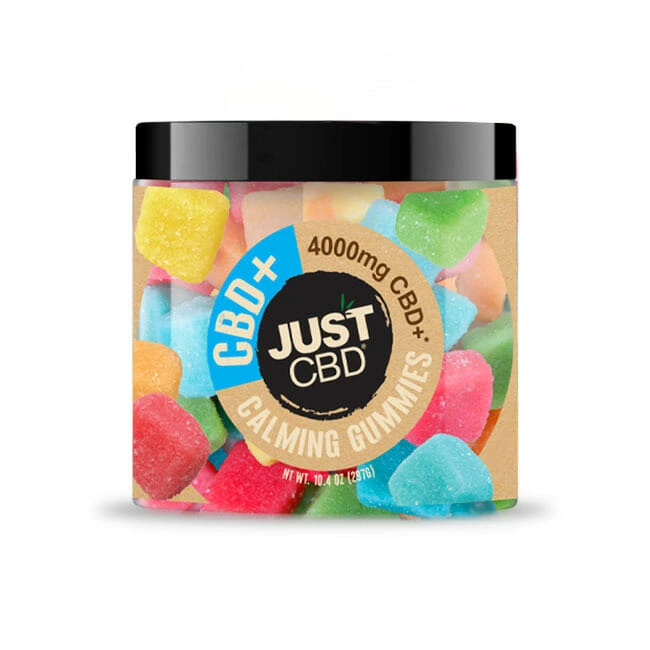CBD’s Potential Role in Muscle Relaxation
Muscle tension and pain can significantly impact daily life, limiting mobility and causing discomfort. CBD, a compound found in hemp plants, has gained attention for its potential therapeutic benefits, including muscle relaxation.
Mechanisms of Action
CBD, short for cannabidiol, has gained considerable attention for its potential therapeutic benefits, including muscle relaxation. While research is still ongoing, studies suggest that CBD may interact with the body’s endocannabinoid system (ECS), which plays a crucial role in regulating various physiological processes, including pain perception and inflammation.
CBD is believed to exert its muscle-relaxing effects through several mechanisms. First, it may bind to cannabinoid receptors, particularly CB1 and CB2 receptors, located throughout the nervous system. Activation of these receptors can modulate neurotransmitter release, influencing pain signals and muscle activity. Second, CBD possesses anti-inflammatory properties, which may help reduce muscle inflammation and soreness often associated with tension.
Furthermore, CBD has been shown to interact with other systems involved in muscle function, such as the serotonin system. By influencing serotonin levels, CBD could contribute to a sense of relaxation and reduced muscle spasms.
Interaction with Endocannabinoid System
CBD, or cannabidiol, has gained significant attention for its potential therapeutic benefits, including muscle relaxation. It interacts with the body’s endocannabinoid system (ECS), a complex network of receptors and neurotransmitters that plays a crucial role in regulating various physiological processes, including pain perception, inflammation, and muscle function.

The ECS consists of three main components: cannabinoid receptors (CB1 and CB2), endocannabinoids (naturally occurring compounds like anandamide), and enzymes responsible for synthesizing and breaking down endocannabinoids. CBD interacts with these receptors, though it does not directly activate them like THC, the psychoactive compound in marijuana. Instead, CBD is believed to modulate the activity of the ECS, influencing the release and function of endocannabinoids.
Research suggests that CBD may help reduce muscle tension and pain by:
• Reducing inflammation: Chronic inflammation can contribute to muscle pain and stiffness. CBD possesses anti-inflammatory properties that may help alleviate these symptoms.
• Interacting with CB2 receptors: These receptors are primarily found in immune cells and tissues involved in inflammation. By modulating CB2 receptor activity, CBD may help suppress the inflammatory response associated with muscle tension.
• Reducing nerve excitability: Muscle spasms and pain can be triggered by overactive nerves. CBD may have a calming effect on the nervous system, potentially reducing nerve excitability and alleviating muscle spasms.
Anti-Inflammatory Properties
CBD, short for cannabidiol, has gained significant attention in recent years for its potential therapeutic benefits. Derived from the hemp plant, CBD interacts with the body’s endocannabinoid system, which plays a crucial role in regulating various physiological processes, including pain perception and inflammation.
One area where CBD shows promise is in muscle relaxation and pain relief. Here are some ways CBD may help:
- Reduces Muscle Inflammation: Chronic inflammation can contribute to muscle pain and stiffness. CBD possesses anti-inflammatory properties that may help reduce inflammation in muscles, providing relief from discomfort.
- Interacts with Pain Receptors: CBD is believed to interact with pain receptors in the nervous system, potentially blocking or reducing pain signals sent to the brain.
- Promotes Muscle Recovery: CBD may aid in muscle recovery after strenuous exercise by reducing inflammation and promoting tissue repair.
Evidence for CBD and Muscle Tension Relief
Muscle tension and pain are common ailments that can significantly impact daily life. While traditional treatments exist, many individuals seek alternative approaches for relief. Cannabidiol (CBD), a non-psychoactive compound found in cannabis, has gained popularity as a potential remedy for muscle discomfort.
Studies on Animal Models
Several studies using animal models have explored the effects of CBD on muscle tension and pain. Research suggests that CBD may interact with endocannabinoid receptors in the nervous system, which are involved in regulating muscle function and pain perception. In rodents, CBD has been shown to reduce inflammation and alleviate pain associated with muscle injuries.
For example, a study published in the Journal of Experimental Medicine found that CBD treatment significantly reduced muscle damage and inflammation in rats subjected to a traumatic injury. Another study, published in the European Journal of Pain, demonstrated that CBD topically applied to inflamed muscles in mice effectively reduced pain sensitivity.
Human Clinical Trials
Human clinical trials have begun to shed light on the potential of CBD for muscle tension relief. A study published in the journal “Pain” found that topical application of CBD cream significantly reduced pain and inflammation in participants with osteoarthritis, suggesting a positive impact on musculoskeletal discomfort.
Another study, published in the journal “JAMA Dermatology,” investigated the effects of CBD oil on patients with chronic skin inflammation. Participants who received CBD experienced a reduction in both pain and inflammation associated with their condition, indicating a potential benefit for muscle tension related to inflammatory conditions.
While these studies provide promising evidence, more research is needed to fully understand the mechanisms by which CBD exerts its effects on muscle tension and to determine optimal dosages and administration methods.
Dosage and Considerations for Using CBD Gummies for Muscle Pain

CBD gummies offer a convenient way to incorporate cannabidiol into one’s daily routine for potential muscle pain relief. However, finding the right dosage is crucial for maximizing benefits while minimizing any potential side effects. Factors influencing CBD dosage include individual body weight, the severity of muscle pain, and personal sensitivity to CBD.
Finding the Right Dosage
Finding the right CBD gummy dosage for muscle pain is a personal process.
- Start with a low dose, such as 5-10 milligrams of CBD, and gradually increase it as needed, paying attention to how your body responds.
- Factors influencing dosage include body weight, the severity of muscle pain, and individual metabolism.
- It’s generally recommended to take CBD gummies consistently for several days or weeks to experience the full benefits.
- Consulting with a healthcare professional is advisable, especially if you have any underlying health conditions or are taking medications, as they can provide personalized guidance on dosage and potential interactions.
Potential Side Effects and Interactions
Dosage recommendations for CBD gummies for muscle pain can vary widely depending on factors such as individual body weight, the severity of pain, and the concentration of CBD in the gummies. It’s generally advisable to start with a low dose (around 5-10mg of CBD) and gradually increase it as needed, while monitoring for any side effects.
Potential side effects of CBD gummies can include drowsiness, dry mouth, diarrhea, and changes in appetite. It’s important to consult with a healthcare professional before using CBD gummies, especially if you have pre-existing medical conditions or are taking other medications.
CBD may interact with certain medications, such as blood thinners, immunosuppressants, and antidepressants. It’s crucial to inform your doctor about any supplements or herbal remedies you are using, including CBD gummies.

Other Factors Influencing Effectiveness
While CBD’s potential benefits for muscle tension and pain are promising, it’s essential to consider other factors that can influence its effectiveness. Individual responses to CBD vary widely, and factors like age, body weight, metabolism, and the severity of muscle issues can all play a role. Additionally, the method of CBD administration (e.g., ingestion, topical application) can affect absorption rates and overall impact.
Individual Response to CBD
Several factors can influence how effectively CBD works for reducing muscle tension and pain. These include individual differences in body chemistry, the severity of the condition, dosage, method of consumption, and potential interactions with other medications or supplements.
The body’s endocannabinoid system (ECS), which CBD interacts with, varies from person to person. Some individuals may have a more responsive ECS, leading to greater benefits from CBD.
Additionally, the severity of muscle tension and pain can impact CBD’s effectiveness. While it may provide significant relief for mild to moderate discomfort, more severe cases might require higher doses or a combination of treatments.
The way CBD is consumed also plays a role. Ingestion through edibles or oils generally takes longer to take effect but can provide longer-lasting relief. Topical applications like creams and balms offer localized pain relief, while sublingual administration under the tongue allows for faster absorption into the bloodstream.
It’s crucial to consult with a healthcare professional before using CBD, especially if you have pre-existing medical conditions or are taking other medications. They can help determine an appropriate dosage and ensure there are no potential interactions that could be harmful.
Quality and Source of CBD Gummies
Several factors can influence the effectiveness, quality, and source of CBD gummies when it comes to addressing muscle tension and pain.
First, the concentration of CBD in each gummy is crucial. Gummies with higher CBD content may provide more potent pain relief but could also increase the risk of side effects if consumed in excess.
Next, the quality of CBD used in the gummies matters. Look for products that use high-quality, organic hemp and undergo third-party lab testing to verify purity and potency. This ensures that the gummies contain the advertised amount of CBD and are free from harmful contaminants.
The manufacturing process also plays a role. Gummies made with reputable brands that follow good manufacturing practices (GMP) are more likely to be safe and effective.
Lastly, individual responses to CBD can vary widely. What works for one person may not work as well for another due to factors like body chemistry, metabolism, and existing health conditions.
It’s important to start with a low dose of CBD gummies and gradually increase it until the desired effects are achieved while monitoring for any potential side effects.
Conclusion
In conclusion, while research on CBD’s effects on muscle tension and pain is still evolving, existing evidence suggests it holds promise as a natural remedy. CBD’s ability to interact with the endocannabinoid system, reduce inflammation, and modulate nerve activity may contribute to its muscle-relaxing and pain-relieving properties.
More clinical trials are needed to solidify these findings and determine optimal dosages and formulations for specific applications.
CBD Gummies for a balanced mind
Score tasty cannabidiol gummies via JustCBD
Clover Design Online
Ditzy Blondes
- Profhilo Treatment Near Sutton, Surrey - May 30, 2025
- Nu-Derm Skin System Near Normandy, Surrey - May 30, 2025
- Health-Focused Social Clubs And Networking Industry Analysis - May 28, 2025
